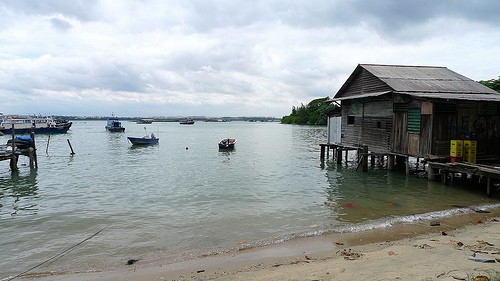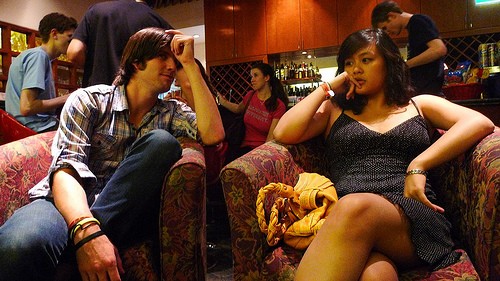Update: Aung San Suu Kyi was released by the military government over the weekend and its made almost every headline in the world. This blog post was only a few days behind the curve.
Last Sunday the Union of Myanmar held its first elections in 20 years. The country, which was known as Burma until the late 1980’s, said the election is part of an (anything but) progressive “march to democracy.”
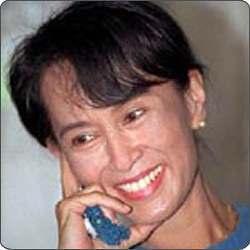
With Aung San Suu Kyi still in house arrest and the National League for Democracy, Suu Kyi’s party, not taking part, many people around the west are criticizing the legitimacy of this election.
Leading up to the election, the State Peace and Development Council (the official name for the military regime) declared that foreign election observers and journalists were barred from entering the country to cover any news events.
The junta said because there are close to 25 foreign news organizations operating in Burma (Xihua, Associated Press and Agence France Presse to name a few) there was no need for foreign journalists to enter the country. Of course, because most of the journalists working for foreign agencies are Burmese, it makes it easier for the government to arrest journalists attempting to cover the election by barring foreigners. With no foreigners in the country, there’s no way the outside world can criticize the election.
The official barring of media didn’t stop some journalists from getting in, though. A recently filed report on BBC World News Channel even withheld the name of their reporter in the country to ensure safety.
After the election on Sunday, news broke that Toru Yamaji, a 49-year-old Japanese journalist working for Tokyo-based APF News, was deported for entering the country illegally and attempting to cover events at the polls. He said it was his duty to cover the events around the country. APF News is the same organization that employed Kenji Nagai, the photographer/videographer who was killed by government troops in the failed monks uprising in Yangon in 2007.
Even without the election it is difficult for foreigners to cover any newsworthy events in the country.
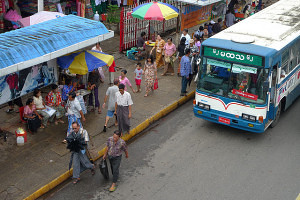
So, in light of the recent “elections” in Burma, I feel compelled to tell my story of what it took for me to get into this reclusive country as a tourist who was studying journalism at the time.
I had just finished my study abroad matriculation at Nanyang Technological University in Singapore and was on a two-month travel whirlwind around Southeast Asia.
The first hurdle was getting in the country. Much like the way American embassies are treated as American soil, Burmese embassies are treated as oppressively as its country.
Standing outside the cold, grey building in central Bangkok, I walked through some heavy blast doors to enter waiting area reminiscent of a 1950’s government office. Everything was industrial, utilitarian and really boring. I had my application in hand and my friend Alex, from Sweden, by my side. Alex and I had met at Nanyang Technological University in Singapore, where the both of studied abroad.
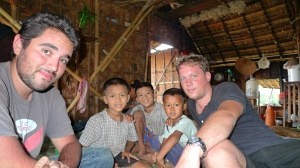
After waiting about a half-hour in the waiting area, I handed the officer behind the desk my completed application, passport and an 800 Thai baht fee for processing. As soon as I walked away I was stopped by the officer.
Apparently, my application wasn’t complete enough.
“You are American, yes?,” he asked inquisitively.
“Yes, I am,” I responded.
I was then handed and extra document by the official. It requested my occupation and my last three jobs. I made sure not to mention anything that can be construed as media-related.
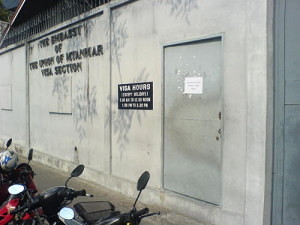
The last three positions I held were for the most part, incriminating for the most part if I told the truth. I handed in the application back to the man and he commented on my occupation as a student. He asked where I was a student. I happily wrote out San Diego State University. He then asked where the university was located. I wrote that out, too. At this point, the line labeled Occupation was already more than filled out. He then asked the man sitting next him a question in Bamar. He came back and then asked the last question: What are you studying? I wrote Geography, which wasn’t a lie, but also not the complete story.
I knew the second I mentioned any form of journalism that it would have been a problem.
Finally, after walking away, my friend Alex commented the amount of hoops I had to jump through to complete my application. Alex said he only had to fill out the normal two-page form.
While this extra page of the application was nothing more than irksome, it illustrates the kind of hoops real journalists must go through to report on events in the country and put life and limb on the line.
My respect goes out to them.
Related:
- Flickr Photos from Burma.
- Facebook Photos from Burma.
- Daily Aztec: “A destination to offer more than sites.”


